While many students use summer break to recharge, several Indiana University of Pennsylvania undergraduates in the Madia Department of Chemistry, Biochemistry, and Physics immersed themselves in research labs across the country—and even on the national stage—gaining experiences that will shape their future careers.
National Laboratory Experience
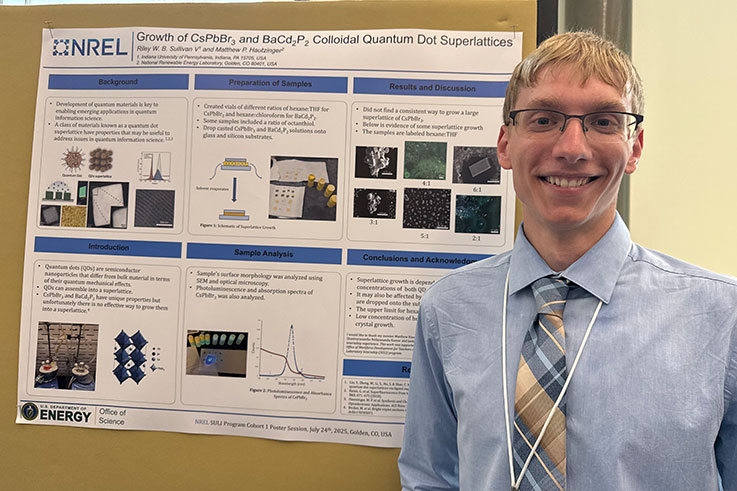
Riley Sullivan presenting his poster at NREL
Just a week after walking across the stage at IUP’s May 10 commencement, chemistry graduate Riley Sullivan headed to Colorado to begin a 10-week Science Undergraduate Laboratory Internship at the National Renewable Energy Laboratory. There, Sullivan worked on the synthesis and characterization of CsPbBr₃ and BaCd₂P₂ colloidal quantum dot superlattices.
“The biggest challenge was finding ways to grow large, stable superlattices,” Sullivan said. “But the chance to work on that problem with experts at NREL was incredible.”
Funded by the US Department of Energy Office of Science, the project not only deepened Sullivan’s knowledge but also prepared him for his next chapter: beginning a PhD program in chemistry at the University of Connecticut this fall.
Medical Research in Cancer Immunotherapy
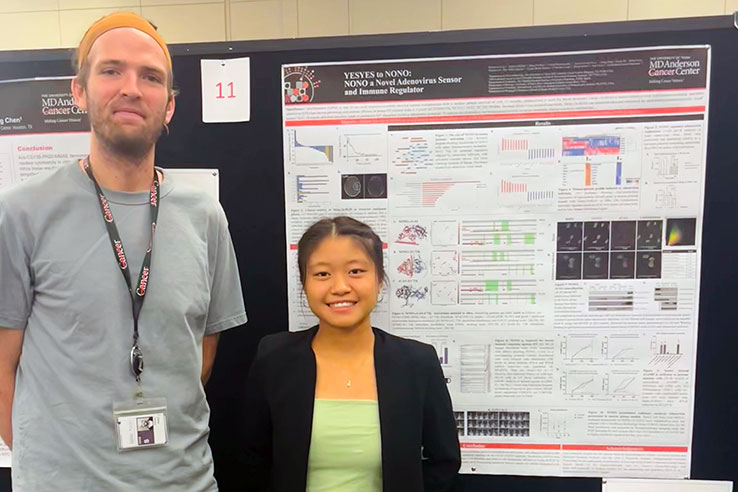
Belinda Lin Xu with her mentor at MD Anderson Cancer Center
For physics/biochemistry major Belinda Lin Xu, the summer was spent in Houston at MD Anderson Cancer Center, where she joined the viroimmunotherapy lab of Candelaria Gomez-Manzano and Juan Fueyo. Guided by mentor Andrew Gillard, Xu studied the protein NONO (p54 nrb) as an immune regulator and viral sensor, work that contributes to new treatments for recurrent glioma patients.
Her project combined computational predictions with lab experiments and animal studies. “It was inspiring to see how research can make a meaningful difference in patients’ lives,” Xu said.
She also credited her IUP coursework and the mentorship of Prof. LeBlond. “The patience and guidance I received at IUP gave me the confidence to think critically and carefully about each step in the research process,” she added.
National Conference Presentations
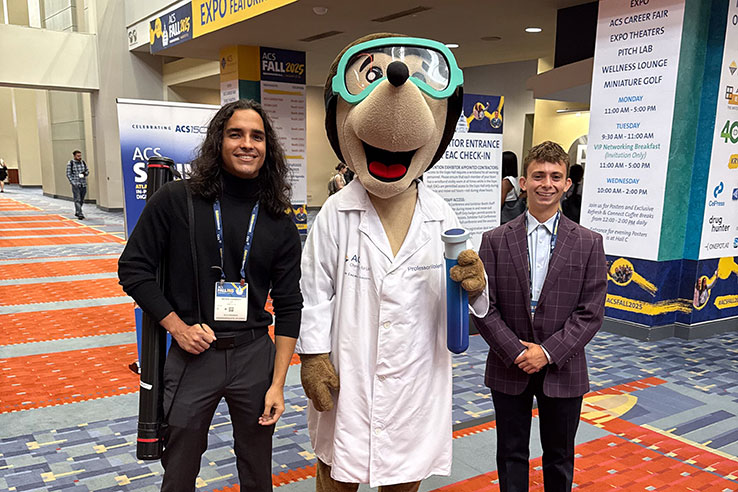
Parker Bradley and Noah Conroy at the fall 2025 ACS national meeting
Two chemistry students, Parker Bradley and Noah Conroy, brought their work to Washington, DC, presenting at the American Chemical Society National Meeting on August 18. Their project, under the guidance of Avijita Jain, explored Montmorillonite clay as a drug delivery vehicle for ruthenium-based photoactive complexes.
Bradley, a senior with two years in Jain’s lab, said presenting at a national conference was both exciting and affirming. Conroy, a junior, added that the opportunity motivated him to continue pursuing challenging research questions.
Research on Campus
Other students gained valuable experience closer to home. The Undergraduate Summer Opportunities for Applying Research (U-SOAR) program at IUP engaged students, including Chloe Benden, Owen Boozer, Parker Bradley, Lucas Chvilicek, Emma Cloak, Noah Conroy, Erin Himes, Allison Krape, Pranav Kumar (Indiana Area High School), Seth Stewart, and Nicholas Wright, in hands-on projects across various laboratories within the department.
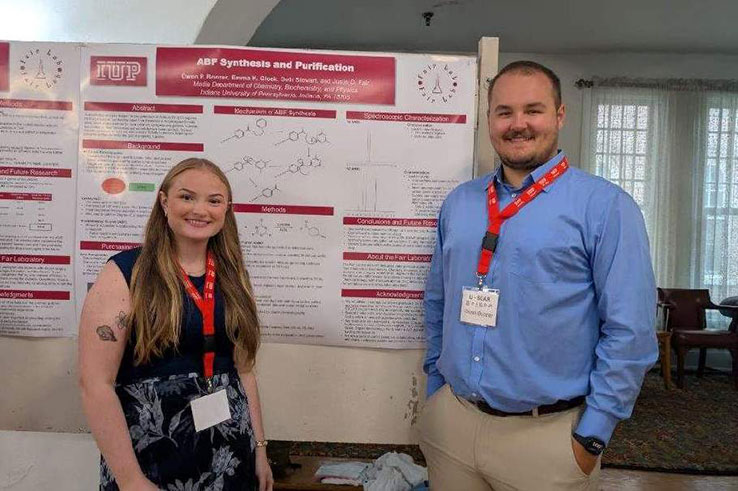
Emma Cloak and Owen Boozer at U-SOAR
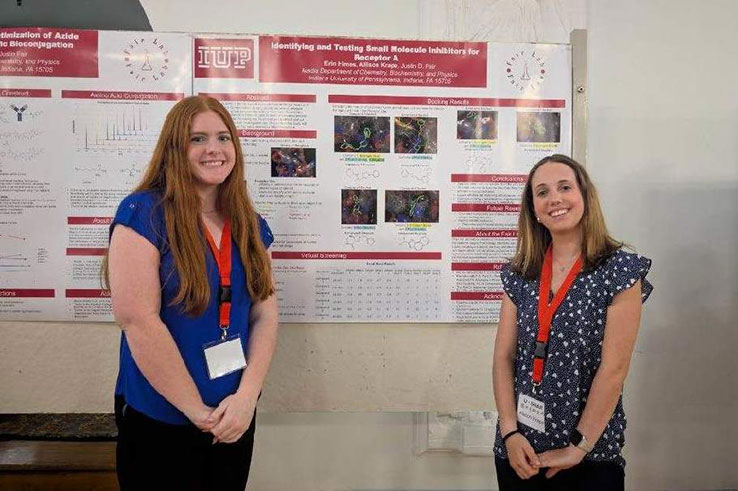
Erin Himes and Allison Krape at U-SOAR
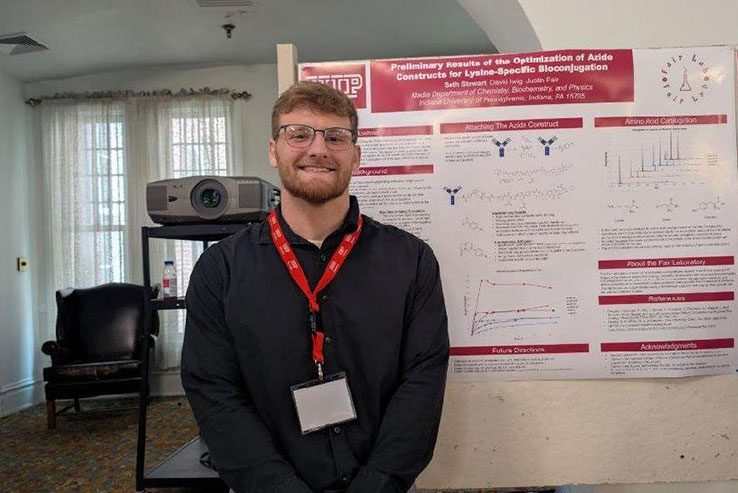
Seth Stewart at U-SOAR
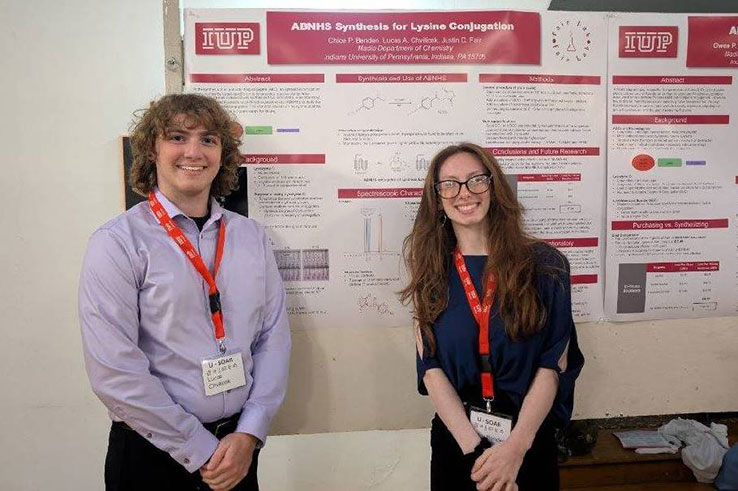
Lucas Chvilicek and Chloe Benden at U-SOAR
Nanotechnology Training at Penn State
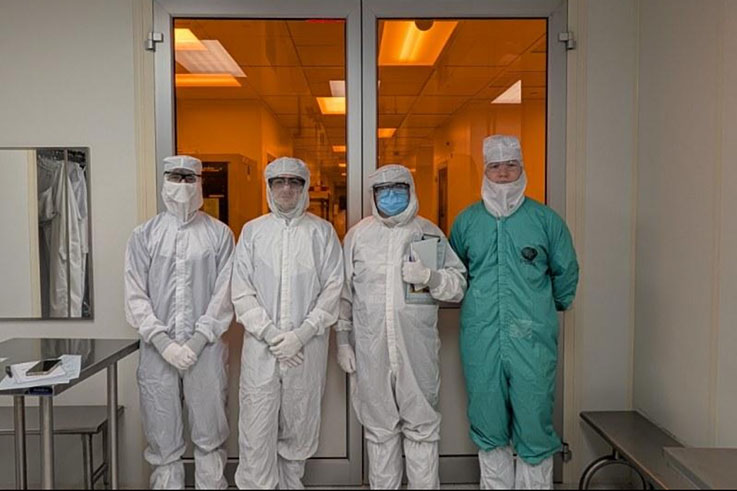
David Eastman and his classmates at Penn State CNEU
Three IUP students—David Eastman, Weike Ye, and James Elder—successfully completed the Nanofabrication Manufacturing Technology Capstone Semester at Penn State this summer. The program included six advanced courses totaling 18 credits and culminated in a microelectronics and nanomanufacturing certificate from the Center for Nanotechnology Education and Utilization.
A Summer That Shapes the Future
Whether working in national laboratories, hospitals, or campus research groups, IUP students used their summer not just to gain skills but also to contribute to real-world scientific advances.
“These opportunities enable our students to translate classroom learning into practical research applications,” said Nathan McElroy, department chair. “They strengthen critical skills, deepen scientific understanding, and prepare students to contribute meaningfully as future researchers. Such experiences also provide a strong foundation for graduate study and enhance career readiness in competitive scientific fields.”